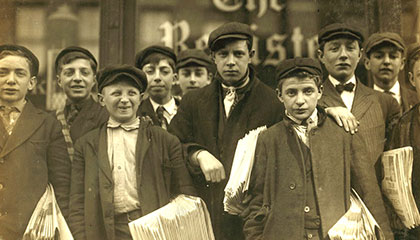It’s been a month since Grok, and the cavalcade of ideas it provided for rumination have now morphed and settled into something more resolute. I was fortunate to lead two short discussions at this event, which featured a mix of excellent presenters who, like me, doubled as attendees. My first session extolled the benefits of Cherokee web server and how it surpasses Apache in many respects—I still desire to write a post about common hosting scenarios in Cherokee and the appropriate settings therein. But that will have to wait.
 My other presentation delved into the issue of news consumption on the internet. (I would prefer to say “web” instead of “internet”, but proprietary apps like Flipboard, excellent though it is, prevent this.) I asked the audience whether they used RSS services such as Google Reader to read news, and very few did. Conversely many of them relied on their Twitter stream to keep up to date, while some perused a handful of trusted sites each day. The diversity of means for news consumption might never change, but there seems to be a problem here that can be fixed, or at least a situation that can be optimized.
My other presentation delved into the issue of news consumption on the internet. (I would prefer to say “web” instead of “internet”, but proprietary apps like Flipboard, excellent though it is, prevent this.) I asked the audience whether they used RSS services such as Google Reader to read news, and very few did. Conversely many of them relied on their Twitter stream to keep up to date, while some perused a handful of trusted sites each day. The diversity of means for news consumption might never change, but there seems to be a problem here that can be fixed, or at least a situation that can be optimized.
News aggregation and curation are two burgeoning concerns in the web industry, a natural result of the continuing decline of print media and the rise of tablets and mobile devices. Several solutions have emerged, some emphasizing your RSS feeds or social media networks while others highlight established sources with a reputation for quality. In all cases, the fundamental desire of the user is to be truly informed, to feel as if nothing important has been missed.
Within that Grok discussion, several remarkable insights were shared. The “unread count” of most RSS readers and Twitter clients is a chief source of anxiety. Much like the ever-expanding email inbox, the unread count tends to overwhelm rather than assist. One alternative approach we considered was a visual display of progress coupled with intentionally vague terminology, and these guideposts could further emphasize a recent time period such as that day or that week. So instead of seeing an unread count of 300+ your app might say, “Today there’s more going on than usual.” The visual aspect could be improved by emulating, as much as possible, the instant feedback of a real-life bookshelf. One look at a stack of books and magazines can provide an immediate expectation about reading time. Online news consumption should ideally behave the same way.
Another point of concern is the quality and trustworthiness of the source material. This is where curation comes into play. As much as our social networks have guided our casual reading in recent years, I believe there is a mounting desire by many to discard a lot of the ephemera and rediscover excellent journalism. Just recently I have read several riveting articles that have renewed my appreciation for this caliber of writing. I have a few ideas about how to achieve the desired balance of curation (quality) and aggregation (popularity), and perhaps I will act on them. Certainly there are some “gamification” elements that could really enhance the experience as well, with an emphasis on truly improving the quality of life for the reader by improving the quality of their daily reading. Now that seems like a worthy goal, right?

Great post Brad. This article really resinates with me. I have not looked at Google reader in ages and can hardly find good links for the podcasts I’m on.
It really is something worth thinking about. There needs to be a place to find relevant news that is timely and informative so I can spend more time reading and less time looking. In fact I don’t like reading long articles because I spend so much time looking. Its like once I find a good piece I have no energy left to read on.
Yeah, my “phase one” plan would be to gather input from folks about their preferred news sources. With enough data, I can get an idea of how to prioritize one source over another. If this app pans out, I think it will benefit from a certain unpredictability that you don’t have with ego-centric apps like Twitter and RSS readers (where once you follow someone, you know too well what your feed will consist of).